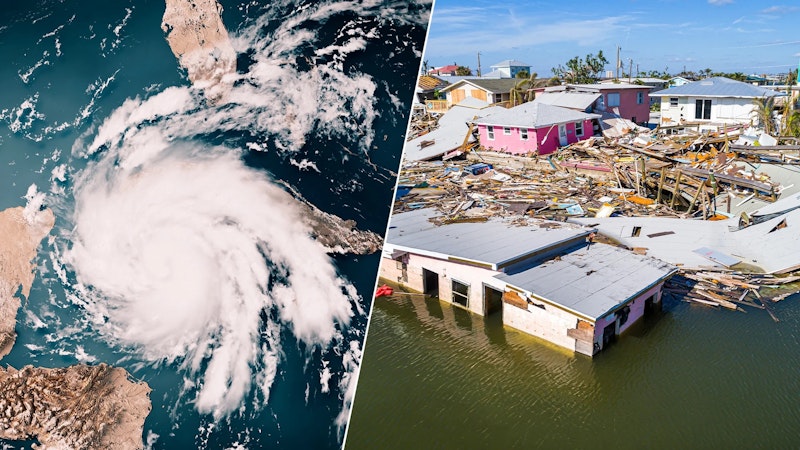About a month ago, a 23-year-old man went out to a pond in the back because there was a line for the men's room at a bar called Bandito's, which is about a 30-minute drive from where I live in South Florida. It turned out to be the most costly urination of his life, because an alligator ended up having his arm, up until just above the elbow, for dinner. It's surprising that someone who lives in Florida would do such a foolish thing, even after drinking, as the guy certainly knew the danger involved. Now if a tourist had acted with such ignorance, it'd be no surprise.
One way to die when you visit Florida is to act like our ponds are like the ponds where you come from. Don’t use them as toilets, and don’t swim in Florida ponds or lakes, under the assumption that, because they're fresh water, they'll probably have alligators in them. Some alligators can survive in saltwater, but that's not a major point of concern. If a pond doesn’t have alligators today, don't assume it won't tomorrow. They cross streets, golf courses, and yards. They go where they want to go, because who's going to stop them?
Don't walk your dog near a pond, even on a leash. In February, in Port St. Lucie County, an 85-year-old woman died when a gator grabbed her while she was walking her dog near a pond in a golf course community. The dog survived, but the authorities caught the alligator and killed it. Let that be a lesson to all the murderous gators in the state!
If you're coming to Florida and are cavalier about dying, ignore warning signals at the beach, which is common among tourists. Bay County Sheriff Tommy Ford said that lifeguards, firefighters, and his deputies who've warned people about hazardous water conditions have been cursed at by beachgoers, most of whom I'm guessing were from out of state. Even though anyone behaving like this towards someone who's trying to keep them safe deserves to die if they then find themselves caught in a rip current, lifeguards don't think that way.
Recently, Tommy Ford's right in the thick of it. Panama City Beach, in Bay County (Florida Panhandle) on the Gulf of Mexico, has been designated the deadliest beach in the US this year, with seven deaths by drowning in just a two-week period in June. Florida Panhandle beaches have seen 11 such deaths. Ford said that, on Father's Day, two dads died trying to save their kids on the beaches he patrols. On one Saturday afternoon during that period, a Panama City Beach lifeguard performed three dozen rescues. Beachgoers must’ve seen some of those rescues, but they still went in the water. Once again, I'm going to assume that most of these people were tourists.
Rip currents are the main danger. Big waves bring a lot of water to the shore, and that water has to flow back out. When that outflow's combined with an outgoing tide from mid-day to early-afternoon, rip currents get especially deadly. "You say you're a good swimmer, a competitive swimmer," said Sheriff Ford, "but you're no match for a rip current." So if you're not worried about dying while on vacation in Florida, take a swim when you see the double red warning flags, and see how it goes. There aren’t enough lifeguards, due to staffing shortages, so it might get dicey.
Rip currents aren't the only hazard. Former NFL quarterback Ryan Mallet came to the Panhandle as a tourist during that deadly two-week period, and left in a box after swimming to a distant sandbar and unable to make it back to shore.
A lifeguard can't warn you about a shark attack, but it's something to be aware of, although it's much less of a danger than swimming under a double red flag, or even a single one. In the final week in June here, there have been at least three shark attack incidents. One victim was a 12-year-old girl from Philadelphia who was swimming in Cocoa Beach. She returned home with 50 stitches in her leg.
Any tourist who's confident about their safety, no matter where they go, should swim at Cocoa Beach, which is one of Florida's most dangerous beaches for sharks, along with New Smyrna Beach, Daytona Beach, Ponce Inlet, and the Florida Keys. New Smyrna's the worst, with 32 shark attacks since 2010, so that would be the place to go for the daredevils. Smarter visitors would stay out of the water and focus on eating, as the Miami Herald has declared that "The food scene is excellent," at Smyrna Beach. Sometimes the food scene's excellent for the sharks too.
And if you don't value your hands, rinse them in the water in Everglades National Park while you're fishing from a boat. A clueless guy did this last week, even after his buddy warned him that it wasn't a good idea. "A few seconds won't hurt," the dopey angler said just before a bull shark bit his hands and pulled him into the water.
In May, NAACP President Derrick Johnson said African-Americans' lives "are not valued" in Florida, which is why the organization has issued a travel advisory in response to the state’s education, immigration and LGBTQ policies. How the state's LGBTQ policies warrant a travel advisory—something that's normally limited to physically dangerous countries like Sudan—for black people is something only Johnson can answer, but black people's lives are in no more danger here in Florida than in any other state. The state's in 26th place in the nation in the category of violent crimes. Johnson said that the travel advisory is in response to Florida's "attempts to erase Black history and to restrict diversity, equity, and inclusion programs in Florida schools," none of which affect tourists. In other words, the advisory's a political stunt.

